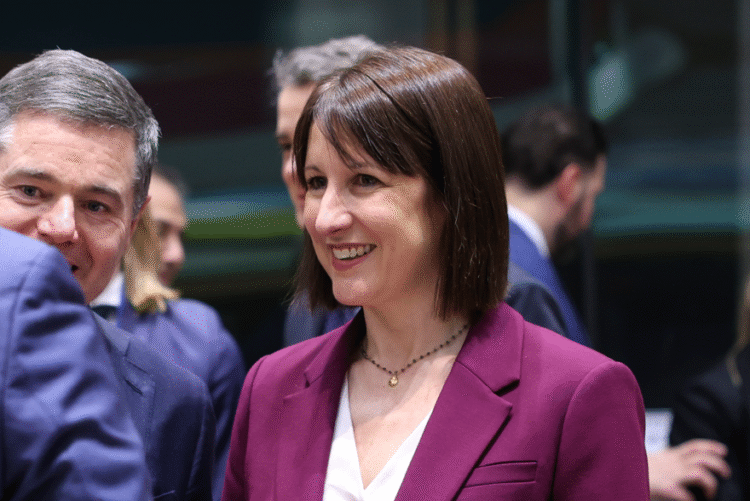Chancellor Rachel Reeves has unveiled a £29 billion NHS funding boost to help cut patient waiting lists, modernise care, and improve patient access.
Speaking in the House of Commons today, Reeves outlined the government’s spending review, saying: “There’s no strong economy without a strong NHS.”
The cash injection is expected to impact employers’ health and benefits strategies, as access to public healthcare improves and employee expectations evolve.
Reeves also confirmed a landmark investment of up to £10 billion for digital transformation, the expansion of GP training to deliver millions more appointments, and the rollout of mental health support to schools in England. The package will also fund 700,000 additional urgent NHS dental appointments annually.
For HR and reward professionals, the NHS boost announced today is likely to change the context in which employer-funded benefits operate.
Major funding announcements
Social and affordable housing received “the biggest funding boost in a generation” as the chancellor unveiled £39 billion of investment over ten years through a new Affordable Homes Programme.
The UK’s energy sector also received a boost as the chancellor earmarked £14.2 billion for Britain’s first state-funded nuclear power station since 1988 in Sizewell C. Government plans also provide more than £2.5 billion for one of Europe’s first Small Modular Reactor programmes and allocate £9.4 billion to UK carbon capture and storage.
Further government investment includes an £11 billion real-terms increase in defence spending, which will support the Armed Forces, create British jobs in British industries, and prioritise the security of Britain as global instability continues, the chancellor said
Police spending power will rise by an average 2.3 percent in real terms as the government plans to provide an extra 13,000 police officers, PCSOs and special constables in England and Wales.
Local transport projects in England’s city regions will receive £15.6 billion funding in total by 2031-32. While local transport improvements outside of these nine regions will receive £2.3 billion from 2026-27 to 2029-30.
The chancellor said the devolved nations would receive their largest real terms settlements since devolution began in 1998.
The Scottish government will receive an average extra £2.9 billion, the Welsh government will collect an average extra £1.6 billion, and the Northern Ireland executive will receive an average extra £1.2 billion, Reeves stated.
Pension investment commitments
Zoe Alexander, director of policy and advocacy at the Pensions and Lifetime Savings Association (PLSA), said: “It is positive the government is taking forward crucial investment in the economy – in infrastructure, in housing, in defence, in energy and in health – and increasing the investment capability of the British Business Bank.
“Pension funds have recently committed to invest more in productive assets in the UK. In return, the PLSA has asked the government to play an increased role in creating a pipeline of investment opportunities for pension funds to support UK growth. Today’s spending review represents a statement of intent that is welcomed by the pension fund trustees who, on behalf of millions of UK savers, will weigh up the opportunities this additional public investment presents.”
Biggest challenges for employers
CIPD head of public policy Ben Willmott, said that while the investments were a welcome boost for a number of the UK’s key sectors, “we need to see greater ambition from the government if we’re to improve productivity and living standards across the country”.
“There’s a danger the plans overlook some of the biggest challenges facing businesses across all sectors of the economy. These include the need to improve the skills and health of the workforce and accelerate the wider adoption of new technology and management best practice.
“Tackling these challenges requires a joined-up workforce strategy for the UK, underpinned by improvements to policy around skills, business support, employment relations, occupational health and labour market enforcement.
“Investment in training and apprenticeships for young people is welcomed, but there’s an urgent need for Skills England to set out how it will support employers to invest more in apprenticeships and in upskilling their existing workforce. This is necessary to tackle skills shortages and support growth beyond the proposed industrial strategy sectors.”
Willmott said there was also “a conspicuous absence” of any additional resources for Acas or the labour market enforcement system to support the effective implementation of the raft of new employment regulation facing businesses.
“Smaller businesses in particular will need access to support and clarity on when new regulations are coming into force to ensure they don’t fall foul of the new laws,” he said.
Harry Quilter-Pinner, executive director at IPPR, said: “Even after the budget, which raised taxes and increased borrowing, the government still had to make tough choices today.
“There are much needed big increases in investment in infrastructure, especially transport and housing, which will make a huge difference to the economy – helping to drive growth and living standards. There are also welcome increases in funding for public services, including the NHS and schools.
“But in other areas we have yet to hear how the government will solve the big challenges facing the country: social care, universities and local authorities all face tough years ahead after years of under-investment and cuts, for example. If the government wants to tackle these challenges, as voters expect it to, it will have to look again at taxes over the coming years.”












